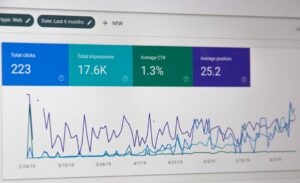In the contemporary digital landscape, social media has emerged as a dominant force, fundamentally altering the way individuals communicate, share information, and perceive themselves. Platforms such as Facebook, Instagram, Twitter, and TikTok have not only transformed interpersonal interactions but have also become significant arenas for self-expression and identity formation. As these platforms continue to evolve, they have increasingly been scrutinized for their impact on mental health.
The relationship between social media usage and mental well-being is complex and multifaceted, encompassing both positive and negative dimensions. While social media can foster connections and provide support networks, it can also exacerbate feelings of inadequacy, anxiety, and depression. The rapid proliferation of social media has coincided with rising concerns about mental health issues among various demographics, particularly adolescents and young adults.
Research indicates that the average teenager spends several hours a day on social media, leading to questions about how this extensive engagement affects their psychological state. The dual nature of social media—serving as both a tool for connection and a potential source of distress—necessitates a nuanced exploration of its implications for mental health. Understanding this relationship is crucial for developing effective strategies to mitigate adverse effects while harnessing the positive aspects of social media.
Key Takeaways
- Social media has become an integral part of modern life, but its impact on mental health is a growing concern.
- Social media plays a significant role in shaping self-perception, often leading to unrealistic standards and comparisons.
- The influence of social media on anxiety and depression is well-documented, with excessive use contributing to poor mental health.
- Cyberbullying on social media platforms can have severe effects on mental health, leading to increased stress and feelings of isolation.
- Social media addiction can have a detrimental impact on well-being, leading to decreased productivity and increased anxiety.
The Role of Social Media in Shaping Self-Perception
The Unrealistic Benchmarks of Social Media
This constant exposure can create unrealistic benchmarks against which individuals measure their own lives, fostering feelings of inadequacy and low self-esteem. Moreover, the feedback mechanisms inherent in social media—likes, comments, shares—can further complicate self-perception. Positive reinforcement from peers can temporarily boost self-esteem; however, negative feedback or lack of engagement can lead to feelings of rejection and worthlessness.
The Consequences of Social Comparison
A study published in the journal “Cyberpsychology, Behavior, and Social Networking” found that individuals who engage in social comparison on platforms like Instagram are more likely to experience body dissatisfaction and depressive symptoms. This phenomenon underscores the importance of understanding how social media shapes not only how individuals view themselves but also how they believe they are perceived by others.
The Importance of Self-Awareness in the Digital Age
It is essential to recognize the impact of social media on self-perception and to develop strategies to mitigate its negative effects. By being aware of the curated nature of online profiles and the potential for unrealistic comparisons, individuals can take steps to promote a healthier and more realistic self-image.
The Influence of Social Media on Anxiety and Depression

The correlation between social media use and mental health issues such as anxiety and depression has been a focal point of research in recent years. Numerous studies have indicated that excessive use of social media can lead to heightened levels of anxiety, particularly among younger users. The constant barrage of notifications, messages, and updates can create a sense of urgency and pressure to remain connected at all times.
This phenomenon, often referred to as “FOMO” (fear of missing out), can exacerbate feelings of anxiety as individuals feel compelled to stay engaged with their online networks. Additionally, the nature of interactions on social media can contribute to depressive symptoms. Unlike face-to-face communication, online interactions can lack emotional depth and authenticity, leading to feelings of isolation even when users are technically “connected.” A longitudinal study conducted by researchers at the University of Pennsylvania found that limiting social media use to approximately 30 minutes per day resulted in significant reductions in feelings of loneliness and depression among participants.
This suggests that while social media can serve as a platform for connection, it can also perpetuate cycles of anxiety and depression when used excessively or in unhealthy ways. The relevant word to link is “anxiety”. Here is the link: anxiety
Cyberbullying and its Effects on Mental Health
| Metrics | Data |
|---|---|
| Prevalence of Cyberbullying | 59% of U.S. teens have experienced cyberbullying |
| Types of Cyberbullying | Harassment, spreading rumors, impersonation, exclusion |
| Effects on Mental Health | Increased risk of depression, anxiety, low self-esteem |
| Impact on Academic Performance | Victims of cyberbullying may experience lower academic achievement |
| Preventive Measures | Education, awareness, supportive school environment |
Cyberbullying has emerged as a pervasive issue within the realm of social media, with profound implications for mental health. Unlike traditional bullying, which typically occurs in physical spaces such as schools or playgrounds, cyberbullying can infiltrate the home environment through digital devices.
This relentless nature of cyberbullying can lead to severe emotional distress, including anxiety, depression, and even suicidal ideation. Research indicates that victims of cyberbullying are at a higher risk for developing mental health issues compared to their peers who do not experience such harassment. A study published in the journal “JAMA Psychiatry” found that adolescents who reported being bullied online were significantly more likely to experience depressive symptoms and suicidal thoughts than those who were not targeted.
The anonymity afforded by social media platforms often emboldens perpetrators, making it easier for them to engage in harmful behaviors without facing immediate consequences. This dynamic creates an environment where victims may feel powerless and isolated, further exacerbating their mental health struggles.
Social Media Addiction and its Impact on Well-being
The concept of social media addiction has gained traction as researchers explore the compulsive behaviors associated with excessive platform use. Similar to other forms of addiction, individuals may find themselves unable to control their social media habits despite recognizing the negative impact on their lives. Symptoms of social media addiction can include neglecting responsibilities, experiencing withdrawal symptoms when not online, and prioritizing virtual interactions over real-life relationships.
This compulsive behavior can lead to significant disruptions in daily functioning and overall well-being. The psychological ramifications of social media addiction are profound. Studies have shown that individuals who exhibit addictive behaviors towards social media are more likely to experience anxiety, depression, and low self-esteem.
A survey conducted by the Pew Research Center revealed that nearly 40% of teens felt overwhelmed by the pressure to maintain an online presence. This pressure can lead to a cycle where individuals feel compelled to engage with social media more frequently, further entrenching their addictive behaviors. Addressing social media addiction requires a multifaceted approach that includes awareness-raising about healthy usage patterns and promoting digital literacy among users.
The Connection between Social Media Use and Loneliness

Paradoxically, while social media is designed to connect people, it can also contribute to feelings of loneliness and isolation. Many users report feeling more disconnected from others despite being constantly engaged with their online networks. This phenomenon is particularly pronounced among younger individuals who may prioritize virtual interactions over face-to-face relationships.
The superficial nature of many online connections can leave individuals feeling unfulfilled and lonely, as they may lack meaningful engagement with others. Research supports this connection between social media use and loneliness. A study published in the “American Journal of Preventive Medicine” found that individuals who spent more time on social media reported higher levels of perceived loneliness compared to those who engaged less frequently with these platforms.
The study suggested that while social media can facilitate connections, it often fails to provide the depth and intimacy necessary for genuine relationships. As users navigate their online lives, they may inadvertently sacrifice real-world interactions that are essential for emotional well-being.
Strategies for Maintaining Mental Health in the Age of Social Media
Given the complex relationship between social media use and mental health, it is essential for individuals to adopt strategies that promote well-being in this digital age. One effective approach is setting boundaries around social media usage. Limiting time spent on these platforms can help mitigate feelings of anxiety and depression while fostering healthier habits.
For instance, individuals might designate specific times during the day for checking social media or utilize apps that track usage patterns to encourage moderation.
Users can unfollow accounts that contribute to negative self-perception or engage in harmful comparisons while seeking out content that inspires or uplifts them.
Engaging with communities that share similar interests or values can also foster a sense of belonging and connection that counters feelings of loneliness. Additionally, practicing mindfulness techniques—such as meditation or journaling—can help individuals develop greater awareness of their emotional responses to social media interactions.
Conclusion and Recommendations for Future Research
The intricate relationship between social media use and mental health underscores the need for ongoing research in this area. As technology continues to evolve, understanding how emerging platforms impact psychological well-being will be crucial for developing effective interventions. Future studies should explore the long-term effects of social media engagement on mental health across diverse populations while considering factors such as age, gender, and socio-economic status.
Moreover, research should focus on identifying protective factors that mitigate the negative impacts of social media on mental health. By understanding what promotes resilience among users—such as strong offline relationships or effective coping strategies—mental health professionals can better support individuals navigating the complexities of digital life. As society grapples with the challenges posed by social media, fostering a balanced approach that prioritizes mental well-being will be essential for future generations navigating this digital landscape.
A related article to social science study can be found in the link Mathematics Education in Social and Political Context: Mathematics as an Intellectual Property vs Mathematics as a Humanistic Discipline. This article explores the intersection of mathematics education with social and political contexts, discussing the implications of viewing mathematics as both an intellectual property and a humanistic discipline. It delves into the broader implications of how mathematics is taught and perceived within society, shedding light on the complexities of this field within the realm of social science study.
FAQs
What is social science study?
Social science study is the investigation and analysis of human behavior and society using various scientific methods and theories. It encompasses disciplines such as sociology, psychology, anthropology, economics, political science, and geography.
What are the goals of social science study?
The goals of social science study include understanding and explaining human behavior, social interactions, and societal structures. It also aims to provide insights into the dynamics of social change, inequality, and the impact of various social, economic, and political factors on individuals and communities.
What are the methods used in social science study?
Social science study employs a wide range of research methods, including surveys, experiments, interviews, observations, and statistical analysis. Qualitative and quantitative approaches are often used to gather and analyze data in order to understand and interpret social phenomena.
What are the key disciplines within social science study?
Key disciplines within social science study include sociology, psychology, anthropology, economics, political science, and geography. Each discipline focuses on different aspects of human behavior, society, and the interactions between individuals and their environment.
How does social science study contribute to society?
Social science study contributes to society by providing valuable insights into human behavior, societal trends, and the impact of various social, economic, and political factors. It helps inform public policy, improve social programs, and enhance our understanding of complex social issues.
























+ There are no comments
Add yours